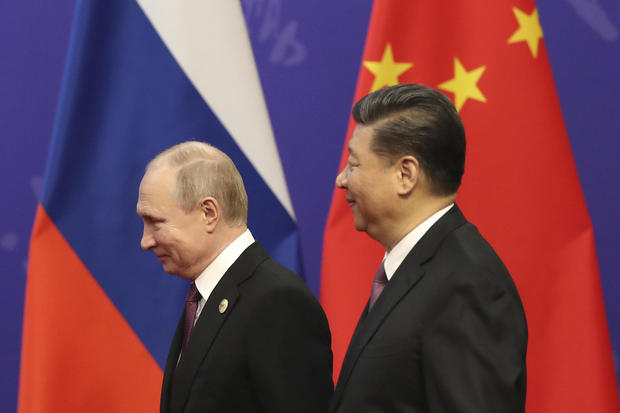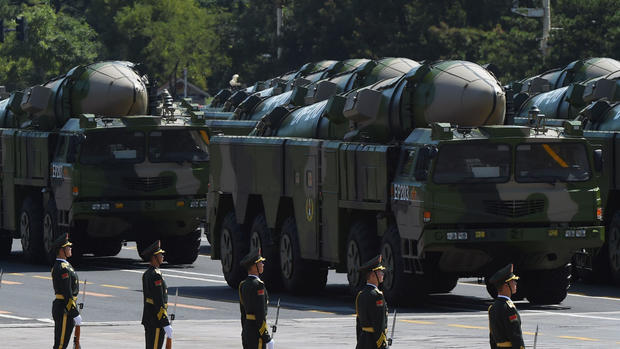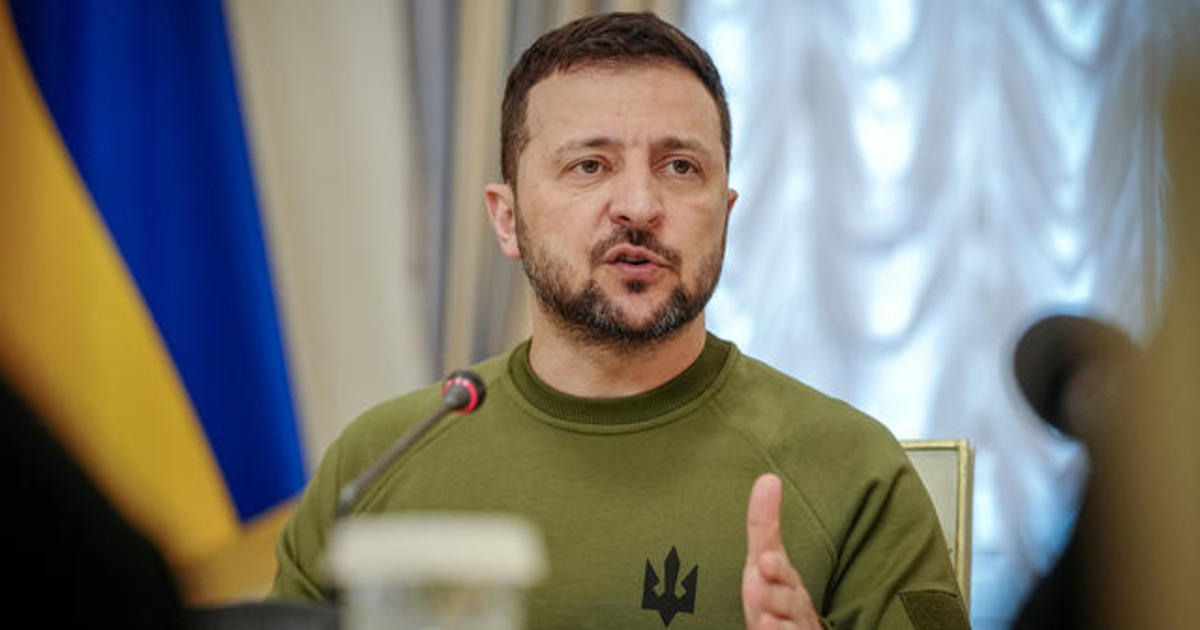Russia is helping China build a new missile attack warning system, Putin says
Moscow — Russia is helping China build a new missile attack warning system, Russian President Vladimir Putin announced Thursday. Neither Putin nor Russia's major weapons manufacturer, which confirmed the deal on Friday, revealed any further details about the system or conditions of the agreement, or when it might be operational.
"We are currently helping our Chinese partners to create a missile attack warning system. It's a serious thing that will drastically increase the defense capabilities of the People's Republic of China," Putin announced at a political conference in Sochi on Thursday.
"Right now only the U.S. and Russia have such systems," he said.
On Friday, Sergei Boyev, director general of Vympel, Russia's major weapons manufacturer, confirmed to Russia's state-run media that the company was working on "modelling" the system for China. Boyev designed Russia's missile attack warning system.
"We can't talk in detail about it because of confidentiality agreements," Boyev said.
Russia's missile attack warning system was built to detect attacks on state and military command posts, and with its incorporated satellites, provides data to Moscow's missile defense system as well as for the country's space monitoring system.
The Kremlin decision to help China build a similar system was not unexpected, foreign affairs analyst Vladimir Frolov told CBS News, noting that it "has been quietly discussed for the past several years."
According to Frolov, the move could be seen as a response to U.S. plans to deploy intermediate range missiles in Asia, and it is likely to lead to deeper cooperation with China on creating an integrated missile defense system. Russia is effectively creating a military alliance with China, Frolov told CBS News, thus lessening the possibility of military clashes between the two countries and raising the stakes should any other geopolitical power, including the U.S., decide to oppose either.
"If the Chinese missile attack warning system will be integrated with Russia's, we will get increased detection range for the U.S. ballistic missiles launched from submarines in the South Pacific and Indian Ocean, where we have problems with fast detection," Frolov told CBS News.
Putin's spokesman, Sergei Peskov, lauded on Friday Russia's "special relations with China of advanced partnership.... including the most sensitive (areas) linked to military-technical cooperation and security and defense capabilities."
Last year, Russia held its largest military exercises in decades, and invited China to participate. Beijing sent about 3,200 troops, and almost 1,000 combat vehicles and aircraft. Chinese media dubbed it the largest-ever deployment for foreign war games.
Pavel Luzin, a defence industry analyst at Russia's Perm State University, told CBS News that the deal on the Chinese detection system is a way for Moscow demonstrating to the world that Russia remains a military superpower and a force to be reckoned with.
"Russia needs this project much more than China does; the two countries are not on par in this situation," Luzin said. "By offering China something it doesn't have, but we do, the Kremlin is showing that Russia is still great and not sliding off to the sidelines."
Additionally, Luzin says, the Kremlin needs its military manufacturers occupied and well-paid in order for them to stay loyal to the regime. Currently India and China remain Russia's biggest customers when it comes to exporting weapons.
"This deal will keep Russian defense companies busy for several years," Luzin told CBS News.





